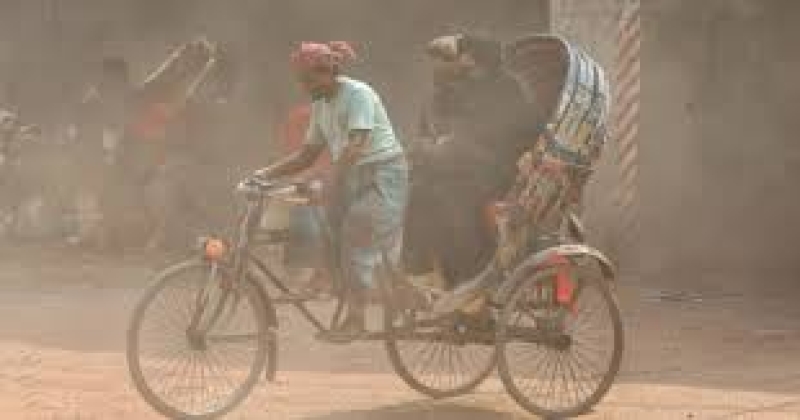- UN Warns Nearly 900 m Poor Face Climate Peril |
- Global Finance Leaders Eye Gaza’s $70b Reconstruction Plan |
- EU hails ‘July Charter’ as Key Step in Bangladesh’s Transition |
- Over 1 million tickets sold for 2026 World Cup in North America: FIFA |
- Daily struggles persist in Gaza even as ceasefire offers some respite |
Dhaka’s air turns ‘unhealty’ Thursday morning

Dhaka, the densely populated capital of Bangladesh, ranked fourth among cities with the poorest air quality this morning with an AQI score of 165 at 9:30 am.
This level, classified as ‘unhealthy, poses a serious threat to public health, according to the AQI index.
Pakistan’s Lahore, Bahrain’s Manama and India’s Kolkata occupied the first three spots on the list, with AQI scores of 182, 172 and 166, respectively.
An AQI between 50 and 100 is considered ‘moderate’ with acceptable air quality usually sensitive individuals should consider limiting prolonged outdoor exertion, between 101 and 150, air quality is considered ‘unhealthy for sensitive groups’, between 150 and 200 is ‘unhealthy’, between 201 and 300 is said to be 'very unhealthy', while a reading of 301+ is considered 'hazardous', posing serious health risks to residents.
The AQI, an index for reporting daily air quality, informs people how clean or polluted the air of a certain city is and what associated health effects might be a concern for them.
The AQI in Bangladesh is based on five pollutants: particulate matter (PM10 and PM2.5), NO2, CO, SO2, and ozone.
Dhaka has long been grappling with air pollution issues. Its air quality usually turns unhealthy in winter and improves during the monsoon.
As per World Health Organization (WHO), air pollution kills an estimated seven million people worldwide every year, mainly due to increased mortality from stroke, heart disease, chronic obstructive pulmonary disease, lung cancer, and acute respiratory infections, reports UNB.

